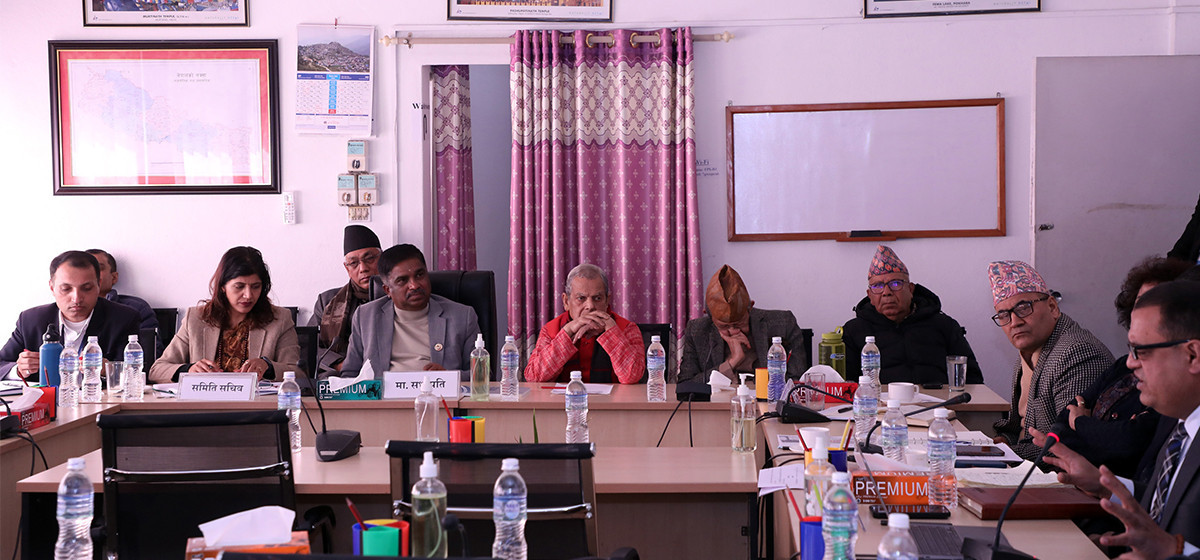
OR
Stop dithering on pesticide tests
Published On: July 8, 2019 02:00 AM NPT By: Republica | @RepublicaNepal
The government became the subject of huge public criticism, once again, over its decision to withhold pesticide testing for vegetables and fruits imported from India. When the government had taken the decision to the effect two weeks ago, people had welcomed it for a good reason. Nepali consumers have been compelled to eat fruits and vegetables laced with harmful pesticides. Such fruits and vegetables, doctors and scientists have warned, are the major cause of alarming rise in cases of lethal diseases like cancer among children and adults alike. Consumption of vegetable laced with harmful pesticides has become the major source of public health hazards. This is why sound and functioning mechanisms to test pesticide residue in vegetables and fruits were long overdue. When the government declared the commitment toward this cause, Nepali consumers had heaved a sigh of relief.
There have been two sides to the fiasco on pesticide issues. First is that the government took the decision without putting in place functioning labs at entry points. This led to a number of Indian trucks loaded with vegetables and fruits grounded across the border. Second, Embassy of India in Kathmandu is learned to have made direct correspondence with the government agencies pressuring them to allow Indian containers loaded with fruits and vegetables to enter Nepal without having to undergo pesticide residue test. In Kathmandu, this particular incident has been perceived as India forcing Nepalis to consume ‘poisonous’ Indian products. This has also generated public resentment, at a time when Nepal and India are said to be in the best of the relations after 2015 episode of blockade. Besides, there are reports of Indian authorities stopping Nepal’s tea exports from Kakarbhitta, which in Kathmandu, has been seen as Indian response to Nepal’s decision to stop fruits and vegetables imports from India until pesticide residue test is performed. This kind of response from Indian authorities, we are afraid, might come in the way of friendly bilateral relations between the two countries.
Both of these incidents—Nepal failing to put in place lab testing facilities along the border points and India’s reported pressure on Nepal government to allow Indian vegetables and fruits to come to Nepal without pesticide test—are unfortunate. Nepal and India must work to avoid similar situations from recurring. Nepali side must immediately put in labs wherever they are needed. As things stand, there are no well-equipped labs, which are necessary for conducting effective pesticide tests for vegetables and fruits coming to Nepal from India, in six major border customs points of Kakadvitta, Biratnagar, Janakpur, Birgunj, Bhairahawa and Nepalgunj. Nepali officials claim the process has been started to procure pesticide-testing machines and install them at these points. This should be done immediately, without any ifs and buts: If labs are not functioning, make them functional, if human resource is the issue, appoint human resources immediately and if machines are to be installed, install them right now. Nepali consumers should not be forced to consume pesticide-laced products simply for the inability of the government authorities to put in place these much-needed mechanisms. Indian authorities should help, rather than hinder, in testing of pesticide residue in fruits and vegetables coming to Nepal from India. Likewise, Indian authorities should also refrain from creating hurdles in Nepal’s export of tea. Such issues should not be allowed to become irritants in Nepal-India relations. What happened this week should never happen again.
You May Like This

Solidarity with Sri Lanka
Sri Lanka is in mourning. In the worst violence since the end of the civil war a decade ago, at... Read More...

Protect our wildlife
Amidst largely despairing news on politics and governance, there is something to inspire optimism in the field of wild life... Read More...

A lot to do for parliament this time
The parliament’s winter session, which is also taken as the bills session, has commenced on Wednesday. The first meeting of... Read More...





Just In
- Home ministry recommends Joshi and Dhakal for promotion to AIG
- Madhesh CM Yadav to seek vote of confidence today
- Gold price increases by Rs 1,700 per tola
- KMC warns of action against those strewing construction materials on street
- National Vitamin 'A' campaign being organized on April 18 and 19
- Two killed in separate accidents
- Seven parliamentary committees meeting today
- NC aggrieved over leader Neupane's demise













Leave A Comment